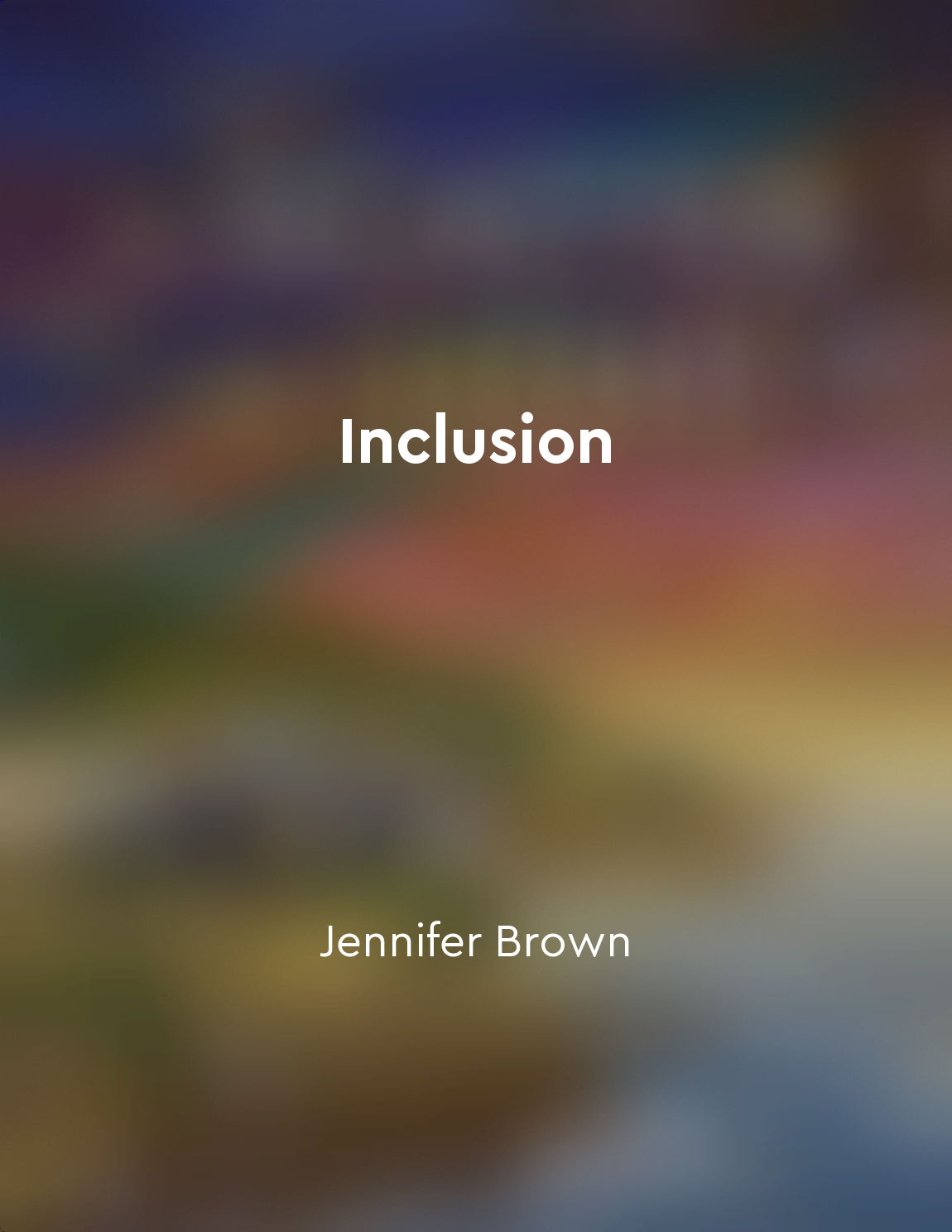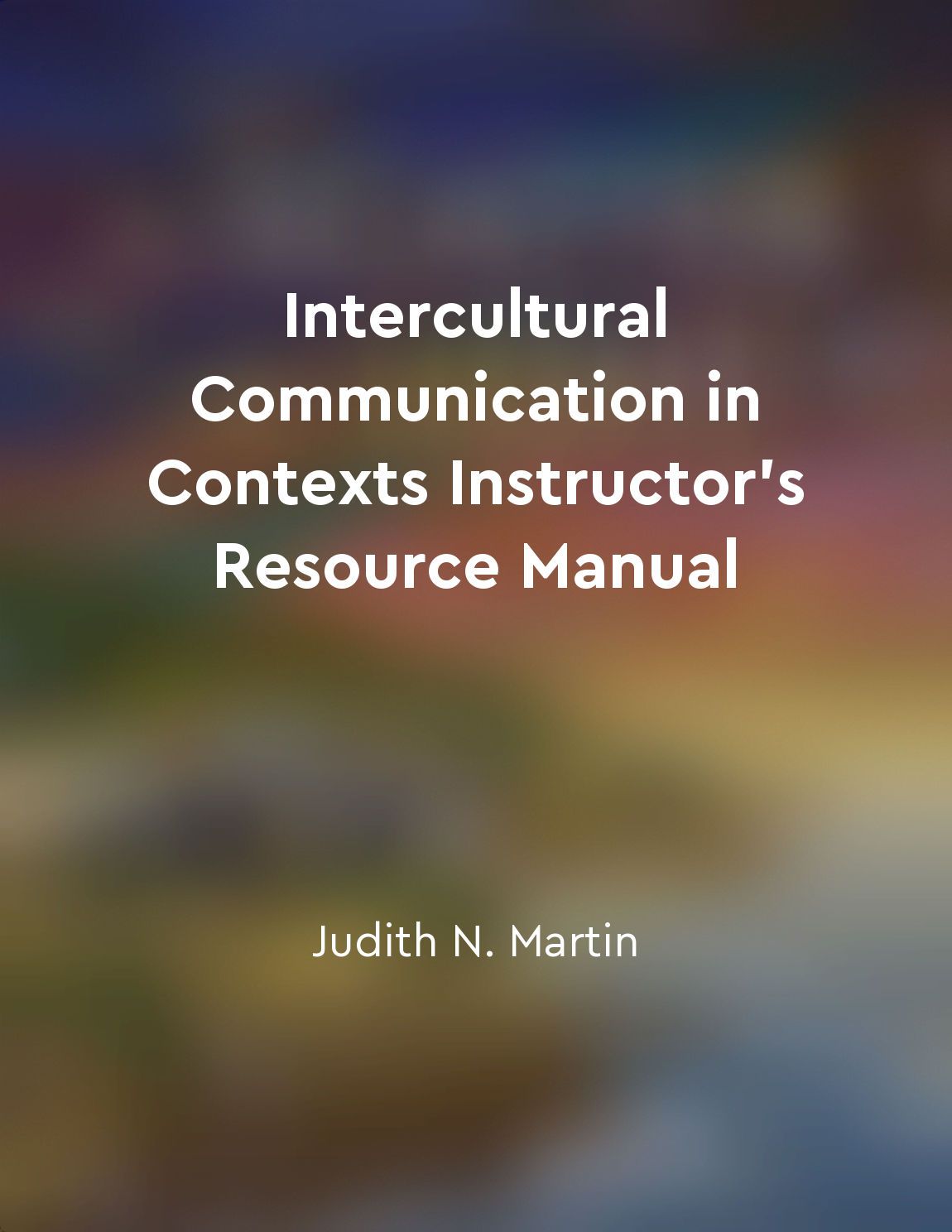Effective communication requires cultural competence from "summary" of Intercultural Communication in Contexts Instructor's Resource Manual by Judith N. Martin,Thomas K. Nakayama,Lisa Bradford,Jolanta A. Drzewiecka
To effectively communicate with individuals from different cultural backgrounds, it is essential to possess cultural competence. This concept refers to the ability to understand, respect, and effectively interact with people from diverse cultures. Cultural competence enables individuals to navigate cultural differences and overcome communication barriers that may arise in intercultural interactions. Without cultural competence, misunderstandings, misinterpretations, and conflicts can easily arise, hindering effective communication. Cultural competence involves being aware of one's own cultural beliefs, values, and biases, as well as being open to learning about and understanding the cultural perspectives of others. It requires individuals to approach intercult...Similar Posts
Silence can be deafening
The silence stretched between them, heavy and burdensome. It was not just the absence of noise; it was a presence in itself. It...
Stay present in conversations
The key to successful communication lies in being fully engaged and attentive when interacting with others. This means actively...

Prejudice can lead to misinterpretations of strangers
In Talking to Strangers, Malcolm Gladwell explores how our preconceived notions and biases can cloud our judgment when interact...
Engage in conversations with native speakers
To truly master Mexican Spanish, it is essential to engage in conversations with native speakers. This is because native speake...
Leadership styles are influenced by cultural norms
Leadership styles vary significantly across cultures. For example, in some cultures, leaders are expected to be authoritative a...

Apply grammar rules in conversational contexts
When we learn grammar rules in a language, it's essential to remember that these rules are meant to guide us in our communicati...
Leaders must be attuned to the silent language of their followers
The ability to read the unspoken messages that surround us is an essential skill for any leader who wants to succeed in today's...

Enable authentic conversations
Enabling authentic conversations is a critical component of fostering an inclusive workplace culture. It involves creating a sp...

Make the other person feel important
Have you ever noticed how some people just seem to have a way of making you feel like the most important person in the room? It...

Show respect for different perspectives
It's important to understand that not everyone sees things the same way. People have different backgrounds, experiences, and be...

